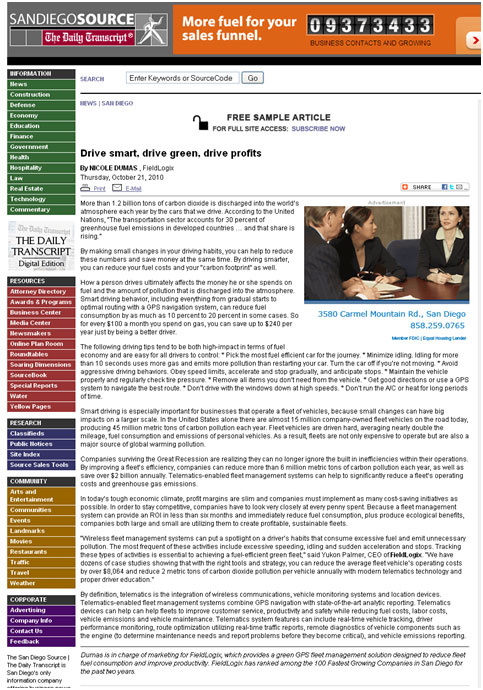Top 10 Reasons Fleet Managers should use a GPS Tracking System
GPS fleet management systems are designed with one primary goal: to save business managers time and money. There many benefits to using a fleet GPS management system. Here is a list of the top 10 reasons.
1. Increased Profits and Performance
Access to vehicle efficiency and driver productivity data helps a company manage the costs related to fleet operations. There can be a significant reduction in employee overtime costs and driver down-time; reduced maintenance costs directly affect the bottom line. Plus improved route efficiency and fleet metrics allow for expanding customer base. GPS truck tracking saves approximately $5,484 per employee annually.
2. Improved Fleet Operations
GPS tracking systems enable real-time decision making plus enhanced accountability of drivers and assets. Fleet managers will no longer have to rely on driver log sheets, service forms and truck maintenance records to keep track of fleet vehicle operations. Instant access to vehicle efficiency and driver productivity data can help a company better manage the costs related to fleet operations. GPS vehicle tracking allows companies to add more jobs to each work day. Companies typically see a 25% increase in work orders completed after implementing a GPS tracking device.
3. Reduced Fuel Costs and CO2 Emissions
Poor driving behavior such as speeding and unnecessary idling wastes fuel and can be identified with a GPS fleet tracking system. Fleet vehicles can use up to 800 gallons of fuel per year due to unnecessary idling alone, which costs approximately $2400 per vehicle per year. Every unnecessary mile you eliminate will reduce your carbon footprint and can make your entire fleet more productive and environmentally responsible.








